Home Literacy Activities for children grades K to Age 8/Grade 3
Parents use reading and writing in their daily activities
- Children reread their favorite stories.
- Parents allow children to select stories to be read during story time (Otto, 2007).
- Parents listen attentively when children start to read aloud from their chosen books.
- Parents answer children’s questions about reading.
- Parents should point out important words when reading to children.
- Parents take children to libraries regularly.
- Parents should introduce several writing materials such as pencils, pens, notebooks, stationery and a wide forms of papers to children (McGee & Richgels, 1996).
- Parents encourage children to scribble notes.
- Parents must help children with difficult letters and words as requested.
- Parents should write down children’s dictation using the exact words as used by children. No correction for grammar or choices of words is necessary. This would allow children to understand the relationship between spoken and written words.
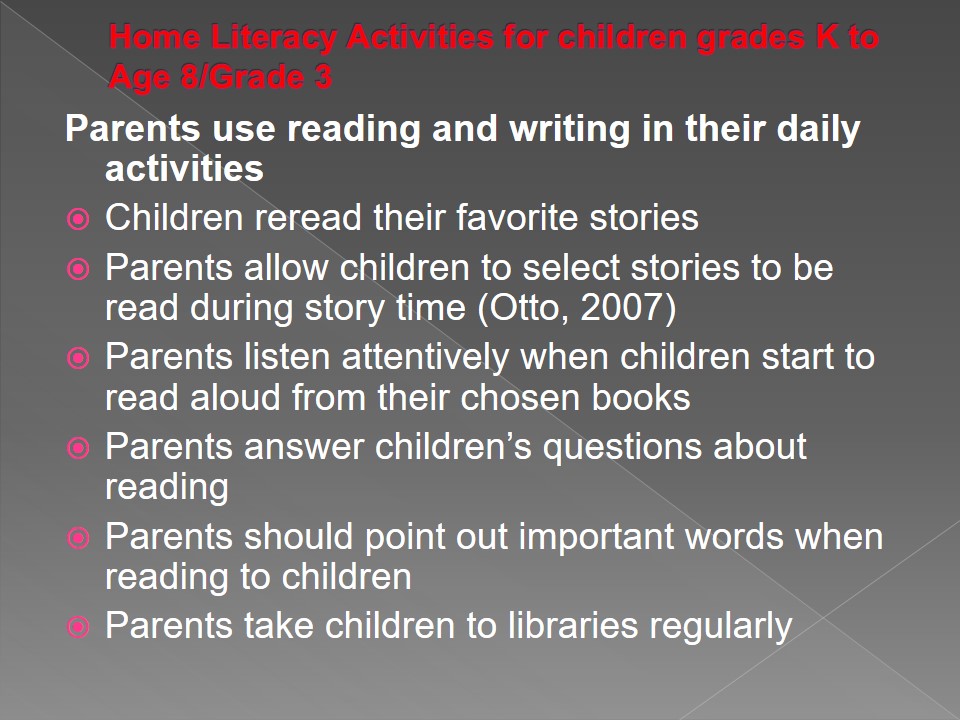
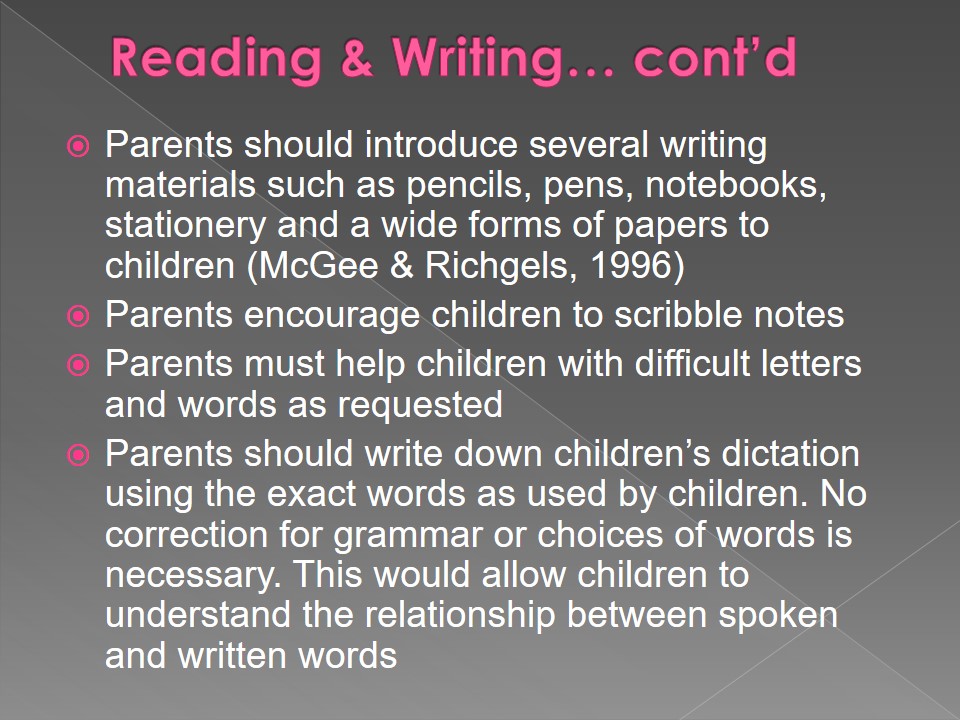
Parents engage children in frequent conversations – children grades K to Age 8/Grade 3
- Parents ensure that children develop positive, nurturing relationships with adults and have better opportunities to initiate and engage in conservations.
- Parents focus on helping children to rephrase and extend their words during conversation.
- Parents model complex words and explain vocabularies.
- Parents ensure that children narrate their experiences and important issues.
- Children tour a community and ask lots of questions, make comments and discuss issues to expand their vocabulary.
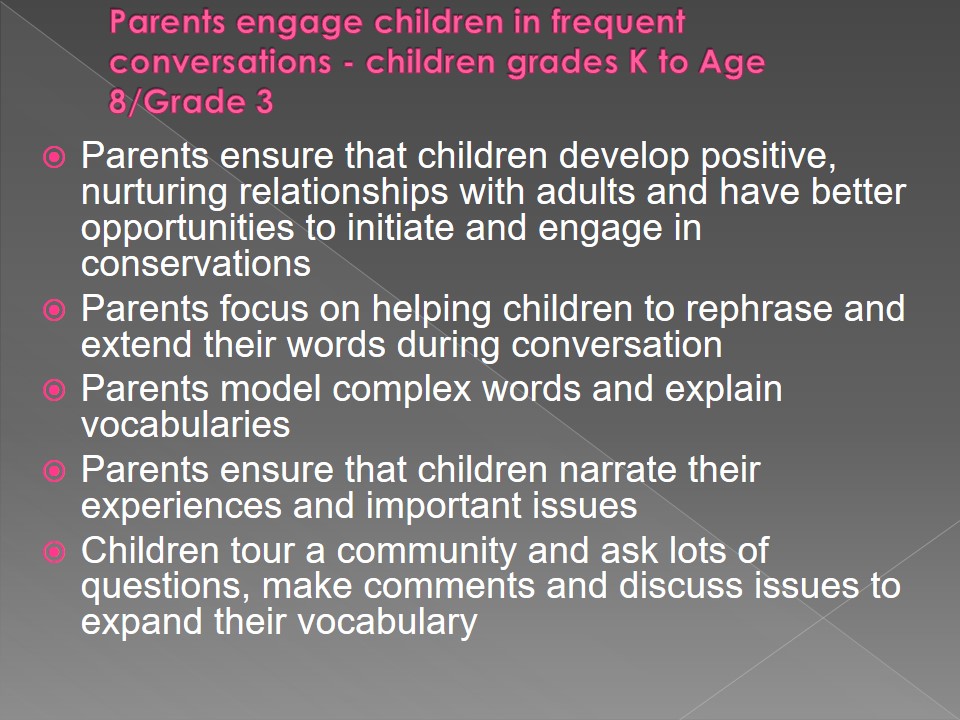
Parents engage children in frequent book sharing – children grades K to Age 8/Grade 3
- Parents encourage children to share and work with the same books.
- Parents rely on the PEER sequence to ask questions and facilitate discussion about books:
- P- parent starts the discussion about a book;
- E – parent evaluates the child’s response;
- E – parent expands the child’s response;
- R – parent repeats the first question to ensure that the child understands (Burns, Griffin & Snow, 1999, p. 52).
- Parents ask children to relate the book with real-life experiences e.g., do you have any idea of who does that?
- Parents ask open-ended questions to initiate discussions.
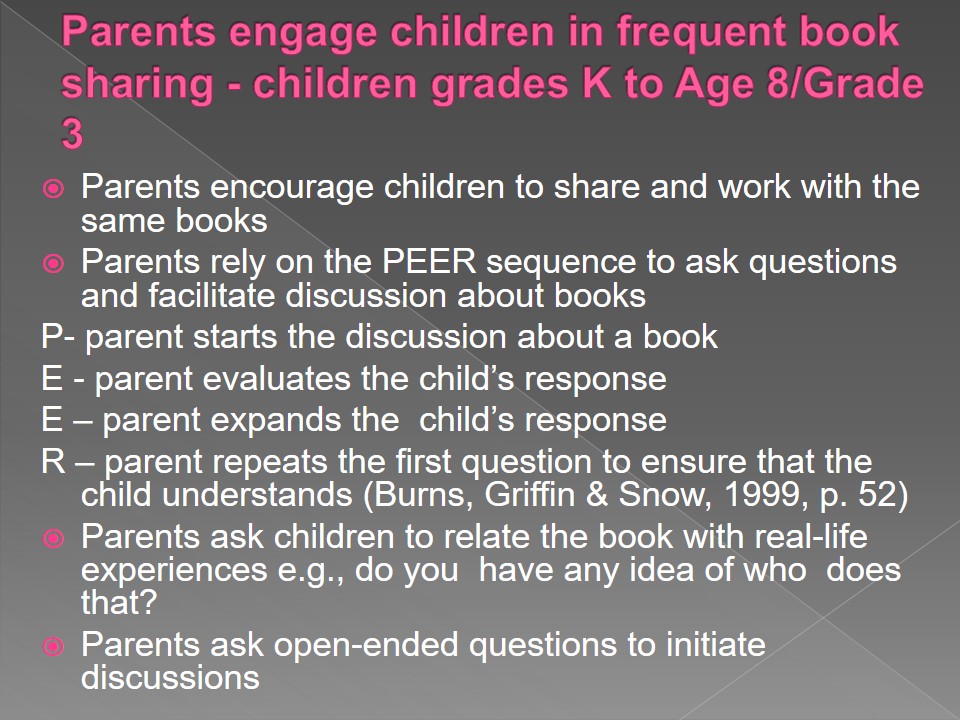
Home Literacy Activities for children from Birth to Age 5/Pre-K
- Parents support babies when working on rhymes or narrating favorite parts of stories.
- Babies use reading materials that contain rhymes, repetition and rhythms.
- Parents choose books that relate to babies’ experiences and demonstrate those relationships.
- Parents read to babies individually or in a small group.
- Parents frequently read to babies.
- Parents should stop reading before toddlers lose interests.
- Parents may hold babies while reading to them.
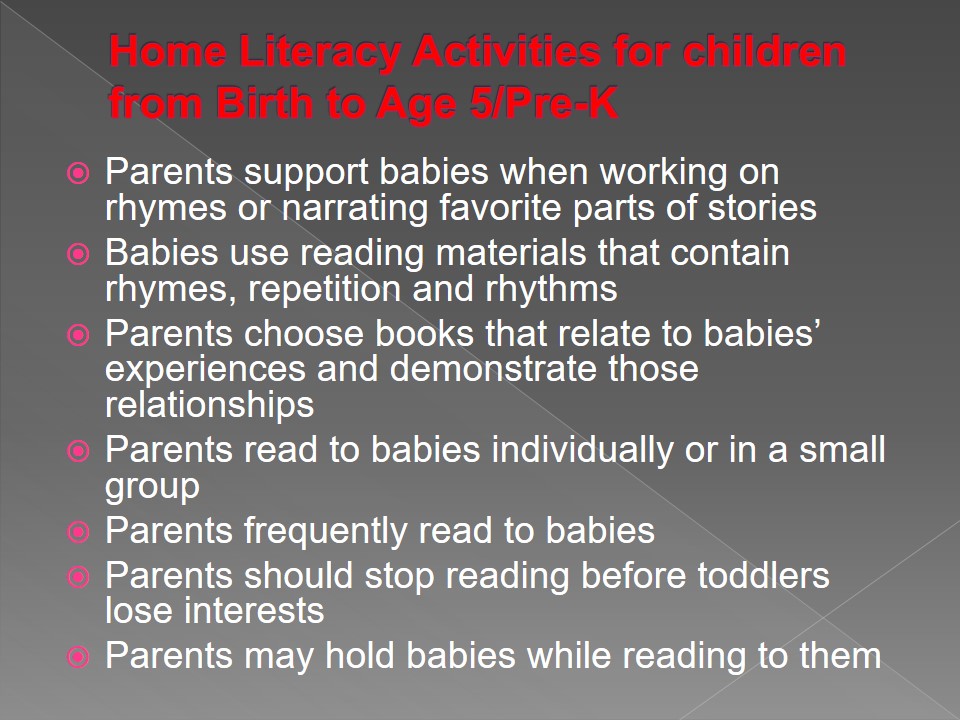
Reading & Writing – children from Birth to Age 5/Pre-K
- Parents could provide a wide range of writing materials, such as crayons, markers, and large sheets of paper.
- Parents encourage children to draw, label, and color pictures.
- Parents share colorful reading materials, cardboard, picture books, and other attractive reading and writing materials with babies.
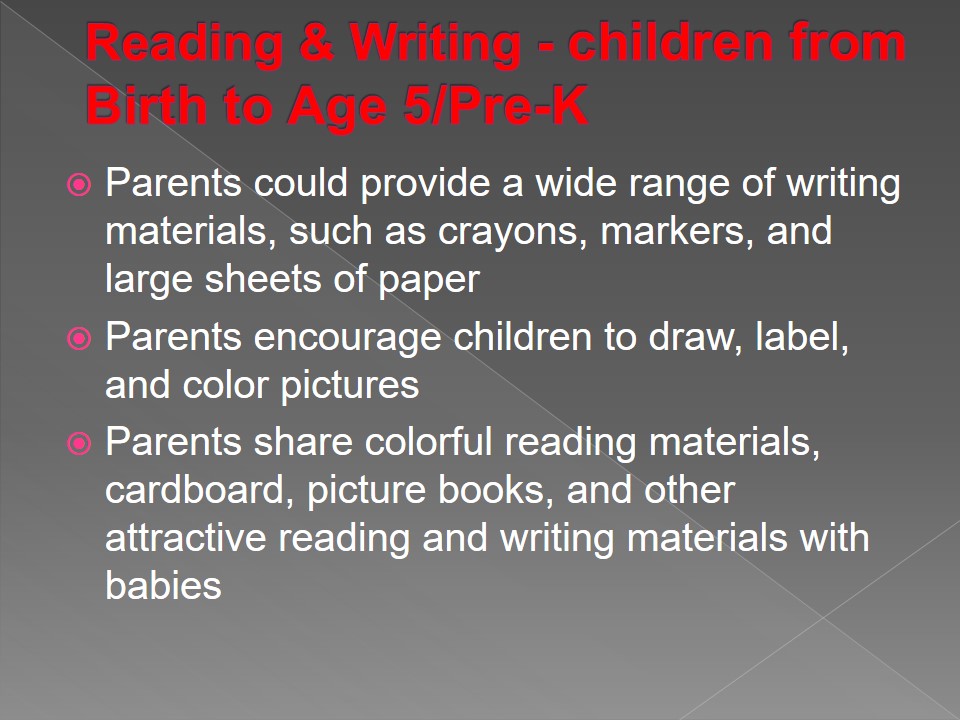
Parents engage children in frequent conversations – children from Birth to Age 5/Pre-K
- Parents should use simple language when talking to babies.
- Establish eye contact with babies.
- Parents should respond to babies’ cues and language learning (Burns et al., 1999).
- Parents may talk to babies during baths, when eating, driving or conducting other normal routines.
- Parents can also sing and encourage children to join them.
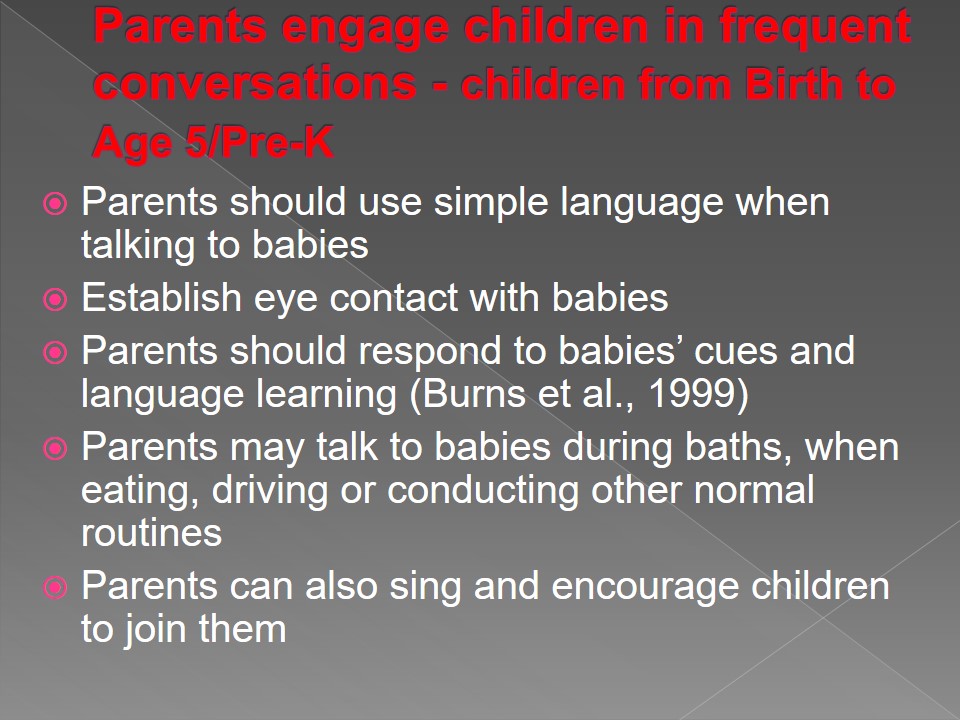
Parents engage children in frequent book sharing – children from Birth to Age 5/Pre-K
- Parents encourage babies to share books and other reading and learning materials.
- Parents support babies’ attempts to label pictures and explain events and activities in a book.
- Parents ask babies open-ended questions to facilitate book discussions e.g., who is in this book and what is he doing?
- Babies explain and name items in a book.
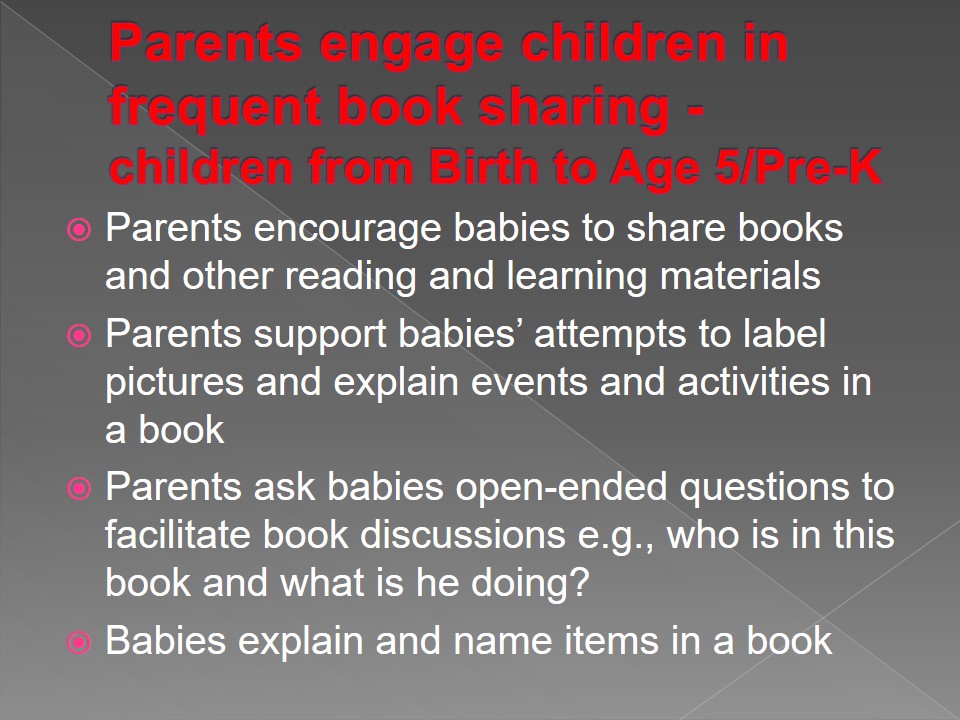
Parents encourage children’s early literacy explorations
- Parents facilitate oral language development when children respond to book contents and written marks they create.
- Parents should encourage children to “read” their preferred story books by themselves and reenacting pictures and stories.
- Parents are supportive in exploring literacy activities with their children.
- Parents read aloud to their children and interact with them through social conversation.
- Children read aloud and discuss their stories with parents.
- Parents provide high quality children’s books to support literacy exploration in day-to-day attempts to read among their children (Johnson and Sulzby, 1999).
- Parents ensure that children can gain access to different literacy materials such as books, newspapers, magazines, illustrations and writing materials among others.
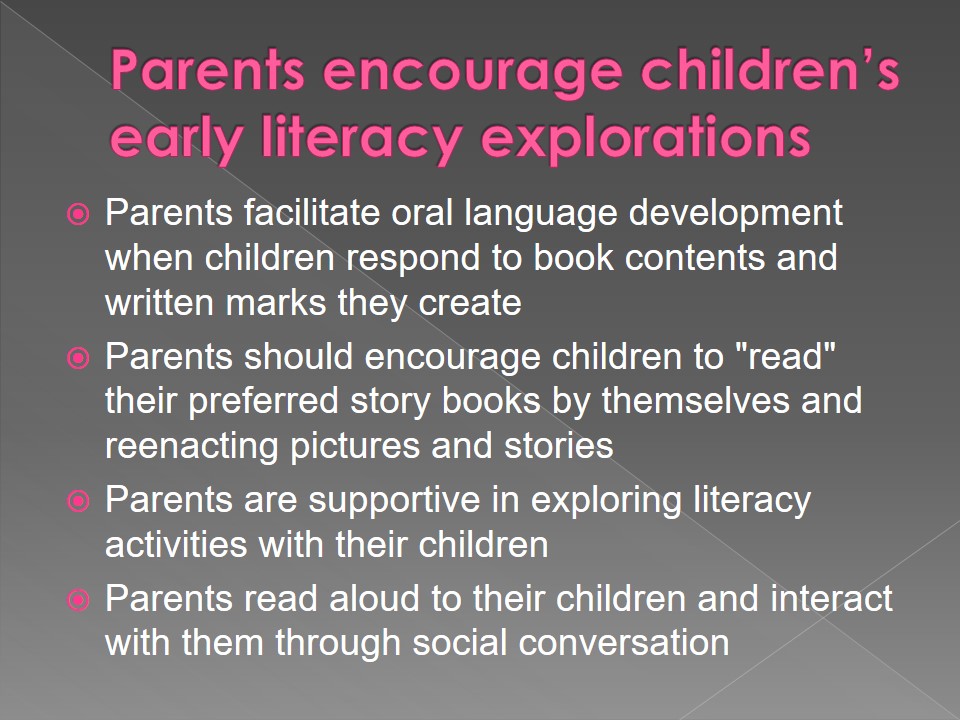
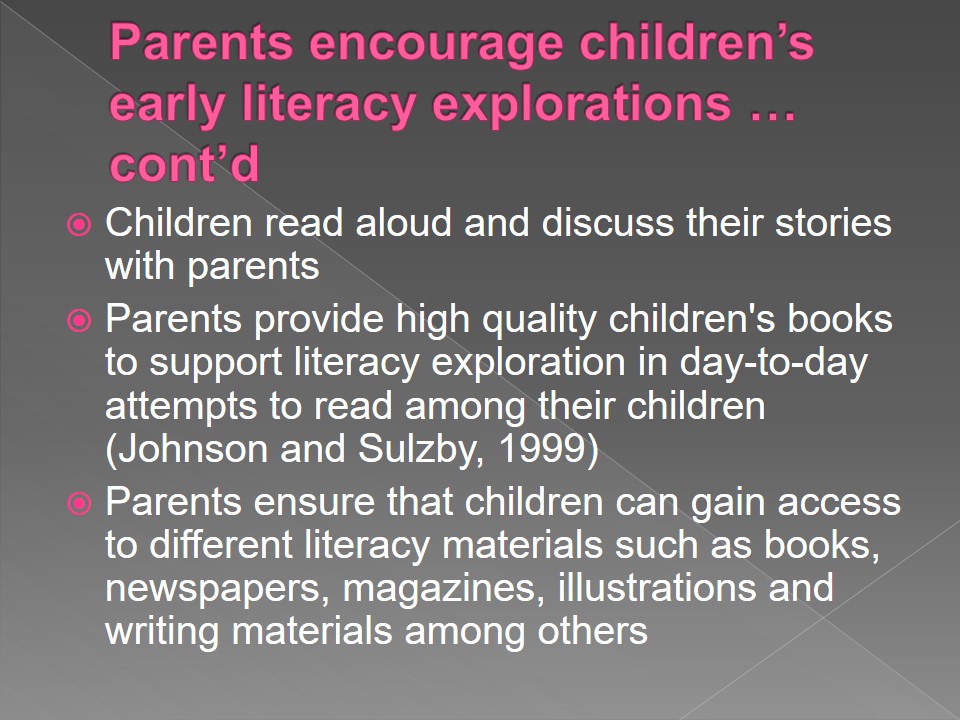
References
Burns, M.S., Griffin, P., & Snow, C.E. (Eds.). (1999). Starting out right: A guide to promoting children’s reading success. Washington, DC: National Academy Press.
Johnson, D., and Sulzby, E. (1999). Critical Issue: Addressing the Literacy Needs of Emergent and Early Readers. Web.
McGee, L.M., & Richgels, D.J. (1996). Literacy’s beginnings: Supporting young readers and writers (2nd ed.). Boston: Allyn and Bacon.
Otto, B. W. (2007). Literacy Development in Early Childhood: Reflective Teaching for Birth to Age Eight. London: Pearson.